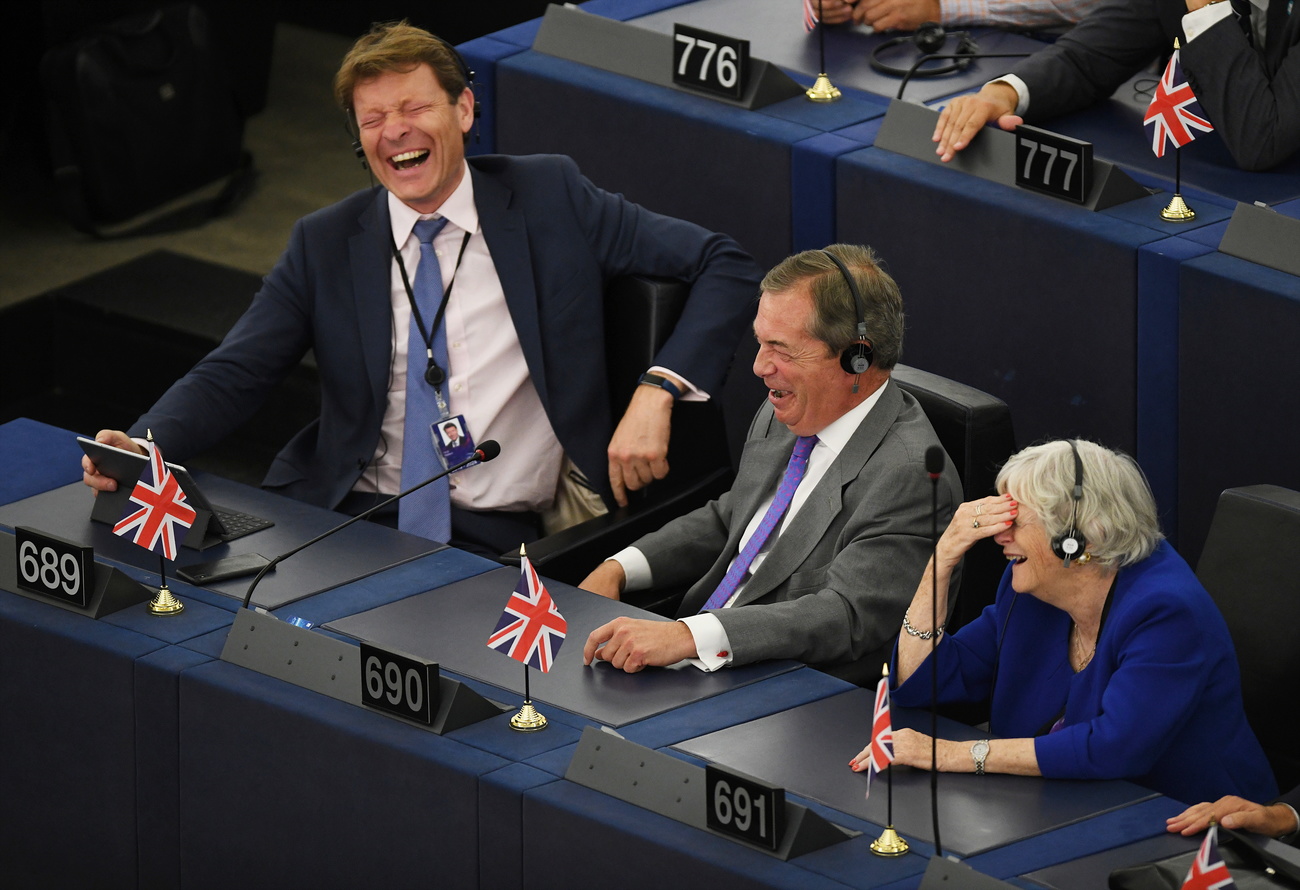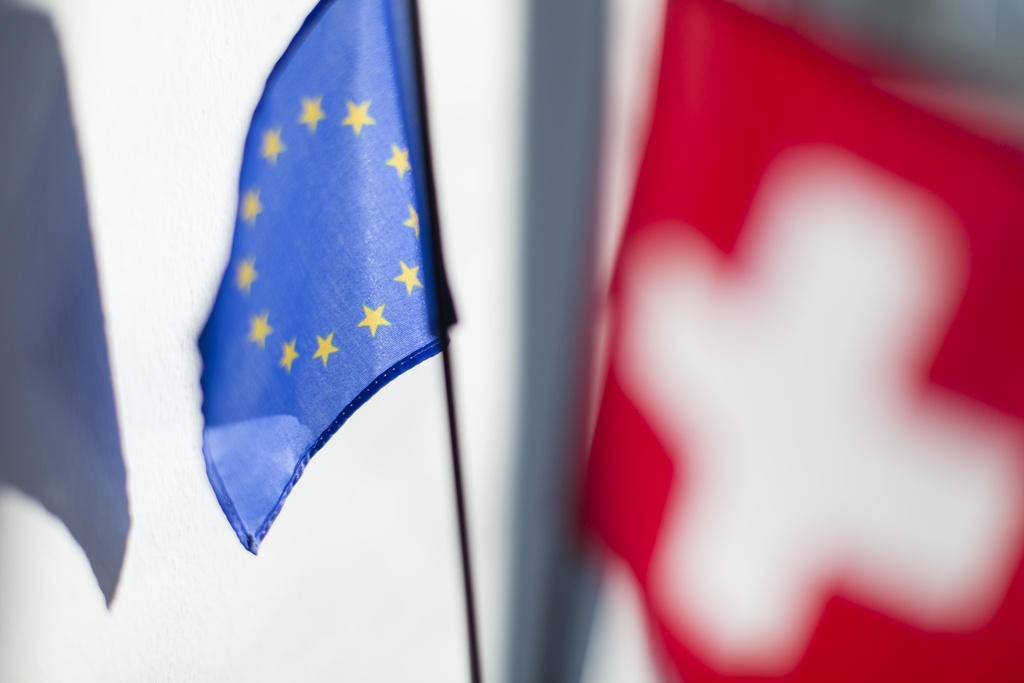
Multi-millionaires against the EU – a bet with an unknown outcome

What do Brexiteers and Swiss EU opponents have in common? Among their ranks are wealthy entrepreneurs and asset managers. Why this finding is surprising - and yet plausible.
In Switzerland, the government, politicians and media representatives have been saying for years that rapprochement with the EU is about “sovereignty versus prosperity”. Switzerland would have to give up some of its independence to stay competitive economically. After all, its companies are dependent on free access to the European economic area.
Now that this narrative has taken root, it may come as a surprise that entrepreneurs, bankers and asset managers are now forming resistance groups against the signing of a framework agreement with the EU. A strange development given that it has always been claimed that the financial sector would benefit from further Swiss integration into the EU.

More
What is this EU framework deal?
A look across the Channel may provide a clue: In the UK, too, millionaire entrepreneurs and investors such as Richard Tice, Paul Marshall and James Dyson were at the forefront of the fight for Brexit. Why do many of the brains behind the anti-EU campaign in both the UK and Switzerland come from the financial sector?
Although Switzerland and the UK are actually rival financial centres, the two countries have been converging post-Brexit. The UK government has recognised Swiss stock exchange regulation as equivalent since February 3, 2021, whereas the EU refused to renew Switzerland’s stock exchange equivalence in 2019 in protest at Switzerland’s delaying tactics on the framework agreement. A bilateral financial services agreement between Switzerland and the UK seems more realistic than with the EU.
“This small group of entrepreneurs dreams of a deregulated economy, similar to Singapore,” says political analyst Janos Ammann, who runs the EU blog “Capital Report” from Brussels. He says that Switzerland’s greater involvement in European institutions, regulations and processes is against the interests of high finance.
“Within the framework of the EU, European states can make much more effective decisions against capital interests because they are united and not competing with each other.” It is no wonder, he said, that some entrepreneurs mourn this competition between states for their financial capital.
Financial industry is divided
However, this kind of thinking is confined to a small group of financial players.
“Big banks like UBS or Credit Suisse have come to terms with regulation,” says Julie Cantalou, a political scientist and president of the GLP Lab, a think tank of the Liberal Green Party. The financial and banking industry is divided on the issue, she says.
The Swiss Bankers Association, for example, supports the framework agreement. It believes that stronger ties with the EU would improve market access for banks, a spokesperson told swissinfo.ch.
A failure of the framework agreement would also push the conclusion of a financial services agreement with the EU into the distant future. Such an agreement would be important for banks to attract foreign clients or to offer loans. In addition, there is a threat of further pinpricks from the EU – such as the withdrawal of stock exchange equivalence in 2019, which restricts trading of foreign shares in Switzerland.
“The big players can easily open an additional office in Amsterdam or another European financial centre. They don’t rely so heavily on such agreements,” Cantalou says.
According to him, it’s more difficult for small private banks or asset managers. This explains why the financial industry is anything but united.
Weighing the benefits
One of the parallels between the Brexit campaign in the UK and the framework agreement spat in Switzerland is that companies are calculating if they’ll be better or worse off overall.
“They are asking themselves what might be more in their interests in ten years’ time: Integration or compartmentalisation?” says Cantalou.
The answer varies depending on the company and the sector. According to Cantalou, the outcome of this calculation also depends on whether an industry is already heavily regulated by the EU or not.
“In the financial industry, we can expect more regulation in the future. Not least because of the financial crisis.”
Ammann and Cantalou agree on the key question from a company’s perspective: “Do I fare better in a weakly regulated market because I can undercut companies from the EU, or would I rather have access to a bigger, more heavily regulated market?”
Because the Swiss economy is diverse, there is no general answer to this question. But one thing is certain: “Regulatory gaps are interesting for the financial industry,” Cantalou says.
Singapore in the Alps?
So why not follow Singapore’s example? The city state is considered low-tax and deregulated, it attracts capital from all over the world and is globally competitive.
The Brexit movement in the UK also dreamed of a “Singapore on the Thames”. In other words, less stringent regulations should better position London as a financial centre globally and outpace the more heavily regulated EU. But Ammann is dismissive of the comparison.
“The example of the UK in particular shows that this bet doesn’t work. The British underestimated the unity and the associated negotiating power of the EU, so they have to adopt many European standards despite Brexit.”
Because of its size, it would be easy for the EU to put pressure on Switzerland, he says. The EU would hardly tolerate a “Singapore in the Alps”.
Under the President Joe Biden, the US is pushing for a global minimum tax for companies. The US Treasury Secretary, Janet Yellen, wrote in an opinion piece that the US no longer wants a “race to the bottom” on taxes. In Switzerland, on the other hand, tax competition is the order of the day. Yellen specifically called out the Alpine nation.
“America will compete on our ability to produce talented workers, cutting-edge research, and state-of-the-art infrastructure, not whether we have lower tax rates than Bermuda or Switzerland,” she said.

In compliance with the JTI standards
More: SWI swissinfo.ch certified by the Journalism Trust Initiative


























You can find an overview of ongoing debates with our journalists here . Please join us!
If you want to start a conversation about a topic raised in this article or want to report factual errors, email us at english@swissinfo.ch.